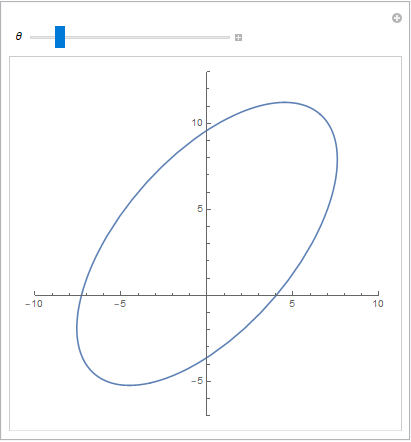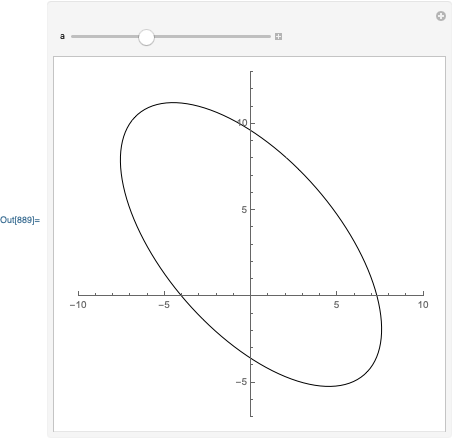I'm trying to plot an ellipse in parametric plot, rotated by some angle and is offset from the origin with respect to the centre. I am almost there, here is my current solution
x[Rx_, Ry_, Cx_, α_, θ_] := Rx Cos[α] Cos[θ] - Ry Sin[α] Sin[θ] + Cx
y[Rx_, Ry_, Cy_, α_, θ_] := Rx Cos[α] Sin[θ] + Ry Sin[α] Cos[θ] + Cy
Manipulate[
ParametricPlot[{x[10, 5, 0, α, θ],
y[10, 5, 3, α, 0.2 π]}, {α, 0, 2 π},
PlotRange -> All], {θ, 0, 2 π}]
However as you will see by rotating the ellipse, when displaced by the origin, changes the effective radius parameters of the ellipse -- not what I want! I suspect that as the ellipse is rotated, the parameters $R_{x}$ and $R_{y}$ are with respect to the $x-y$ axis and not with the geometry itself, so effectively become a function of rotation.
Can anyone see a way of keeping the shape the same when rotated for any ellipse centre position? There is a solution here but the problem is if one displaces the ellipse it doesn't rotate about the centre of the ellipse, but about the origin.


